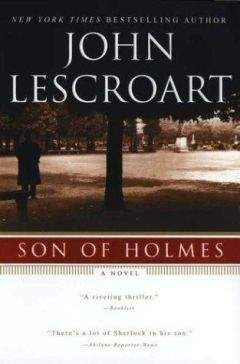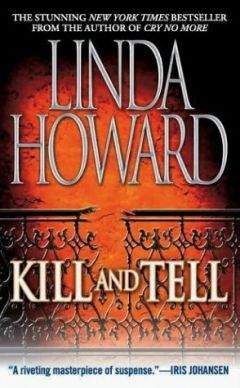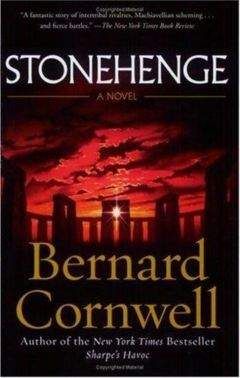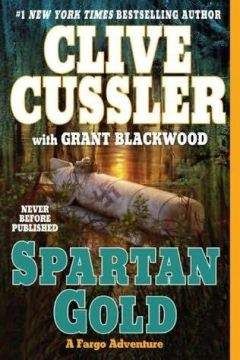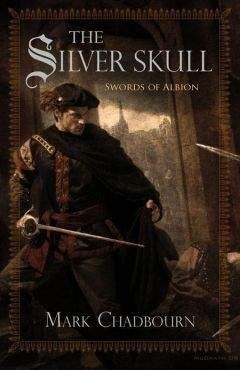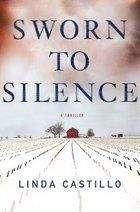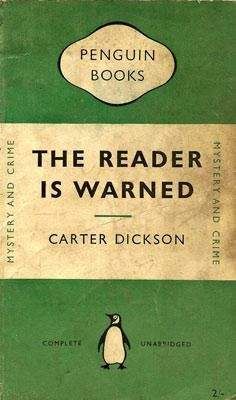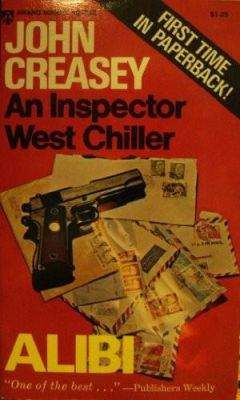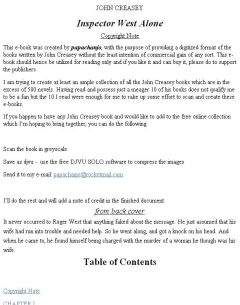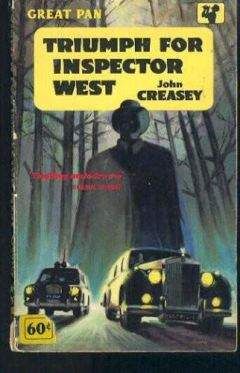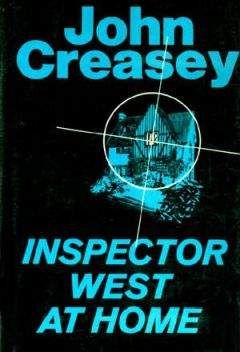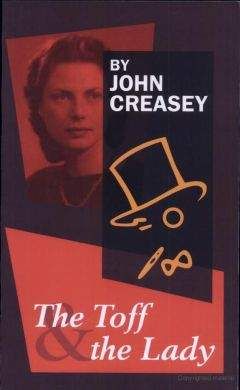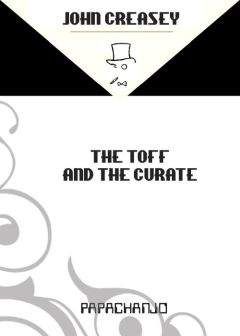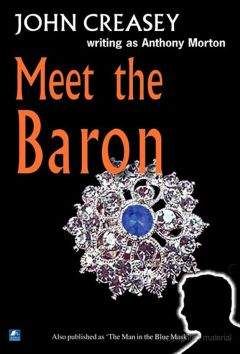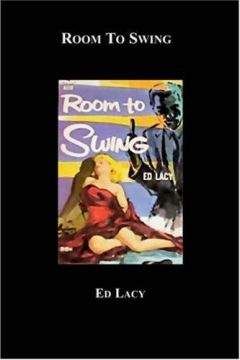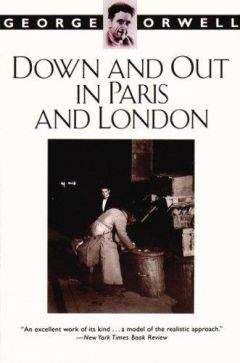John Carr - The Plague Court Murders
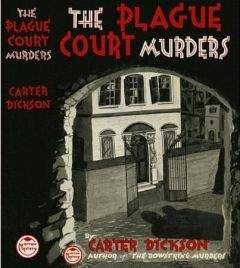
Скачивание начинается... Если скачивание не началось автоматически, пожалуйста нажмите на эту ссылку.
Жалоба
Напишите нам, и мы в срочном порядке примем меры.
Описание книги "The Plague Court Murders"
Описание и краткое содержание "The Plague Court Murders" читать бесплатно онлайн.
THE FIRST SIR HENRY MERRIVALE MYSTERY. When Dean Halliday becomes convinced that the malevolent ghost of Louis Playge is haunting his family estate in London, he invites Ken Bates and Detective-Inspector Masters along to Plague Court to investigate. Arriving at night, they find his aunt and fiancée preparing to exorcise the spirit in a séance run by psychic Roger Darworth. While Darworth locks himself in a stone house behind Plague Court, the séance proceeds, and at the end he is found gruesomely murdered. But who, or what, could have killed him? All the windows and doors were bolted and locked, and no one could have gotten inside. The only one who can solve the crime in this bizarre and chilling tale is locked-room expert Sir Henry Merrivale.
‘Very few detective stories baffle me nowadays, but Mr Carr’s always do’ - Agatha Christie
There were two occupants of the room both women. It added a sort of witchlike eeriness to the place. One of them sat near the fire, half risen out of the chair. The other, a young woman in her middle twenties, had turned round sharply to look at us; her hand was on the sill of one of the tall shuttered windows towards the front.
Halliday said: "Good God! Marion
And then she spoke in a strained voice, very clear and pleasant, but only a note removed from hysteria. She said:
"So it's - it is you, Dean? I mean, it's really you?"
It struck me as a strange way of wording an obvious question, if that was what she really meant to imply. It meant something else to Halliday.
"Of course it is," he said, in a sort of bark. "What did you expect? I'm still me. I'm not Louis Playge. Not just yet."
He stepped into the room, and we followed him. Now, it was a curious thing, but the moment we crossed that threshold I felt the lightening of a pressing, crowding, almost suffocating, feeling which was present in the air of the entrance-hall. We all went in quickly, and looked at the girl.
Marion Latimer stayed motionless, a tense figure in the candlelight; and the shadow seemed to tremble at her feet. She had that thin, classic, rather cold type of beauty which makes face and body seem almost angular. Her hair was set in dark-gold waves close to the somewhat long head; her eyes were dark blue, glazed now with a preoccupied and somehow disturbing quality; the nose short, the mouth sensitive and determined.... She stood there crookedly, almost as though she were lame. One hand was thrust deep into the pocket of the brown tweed coat wrapped about her thin body; as she watched us, the other hand left the window-sill and pulled the collar close round her neck. They were fine, thin, wiry hands.
"Yes. Yes, of course ..." she muttered. She essayed a smile. She raised a hand to brush her forehead, and then caught her coat close again. "I-I thought I heard a noise in the yard. So I looked out through the shutter. There was a light on your face, just for a second. Absurd of me. But how did you come to be-how... ?"
Some influence was about the woman: an emotional repression, a straining after the immaterial, a baffled and baffling quality that sometimes makes spinsters and sometimes hellions. It was a quality of vividness, of the eyes or the body or the square line of the jaw. She disturbed you; that is the only word I can think of.
"But you shouldn't have come here," she said. "It is dangerous----tonight."
A voice from the fireside spoke softly, without emotion. "Yes. It is dangerous."
We turned.... She was smiling, the little old lady who sat near the dull and smoky fire. She was very modish. Bond Street had coiffed her elaborate white hair; there was a black velvet band round her. throat, where the flesh had begun to darken and sag. But the small face, which suggested wax flowers, was unwrinkled except round the eyes, and it was highly painted. The eyes were gentle and hard. Though she smiled at us, her foot was tapping the floor slowly. She had obviously been shaken at our entrance; her jeweled hands, lying limp along the arms of the chair, were twisting and upturning as though to begin a gesture; and she was trying to control her breathing. You have read, doubtless, of people who are supposed to resemble eighteenth-century French marquises by Watteau. Lady Anne Benning looked like a thoroughly modern, sharp-witted old lady got up to resemble one. Besides, her nose was too large.
Again she spoke softly, without emotion.
"Why have you come here, Dean? And who are these men with you?"
The voice was thin. It seemed to explore and probe, despite its professional sweetness, and I almost shuddered. Her black eyes never left his face, and she retained that mechanical smile. There was a sickliness about her.
Halliday straightened up. He made an effort.
"I don't know whether you are aware of it," he said, "but this is my house." (She had put him on the defensive, as, I imagined, she always had. At his remark she only smiled, dreamily). "I hardly think, Aunt Anne, that I need your permission to come here. These gentlemen are my friends."
"Present us."
He did so, first to Lady Benning and then to Miss Latimer. It was a mad business, those formal introductions in the damp-smelling vault of a room, among the candle-flames and the spiders. Both of them-the cold, lovely girl standing against the mantelpiece, the reptilian pseudo-marquise nodding against her red silk cloak-were hostile. We were intruders in more senses than one. About them both was a kind of exaltation, which some might call self-hypnosis; a repressed and waiting eagerness, as at some tremendous spiritual experience they had once undergone and hoped to undergo again. I stole a sideways glance at Masters, but his face was as bland as ever. Lady Benning opened her eyes.
"Dear, dear," she murmured to me, "of course you are Agatha Blake's brother. Dear Agatha. And her canaries." Her voice changed. "The other gentleman I fear I have not the pleasure of recognizing.... Now, dear boy, perhaps you will tell me why you are here?"
"Why?" repeated Halliday. His voice cracked. He struggled with a baffled anger, and put out his hand towards Marion Latimer. "Why? Look at you - look at both of you! I can't stand this fog. I'm a normal, sane human being, and you ask me what I want here and why I'm trying to stop this nonsense! I'll tell you why we came. We came to investigate your blasted haunted house. We came here to get hold of your blasted turnip-ghost and smash it in little bits for good and all; and, by God!"
The voice echoed and rang blatantly, and we all knew it. Marion Latimer's' face was white. Everything was very quiet again.
"Don't challenge them, Dean," she said. "Oh, my dear, don't challenge them."
But the little old lady only twitched up her fingers again, from palms flat on the chair-arm, and half shut her eyes, and nodded.
"Do you mean that something impelled you to come here, dear boy?"
. "I mean that I came here because I damned well chose."
"And you want to exorcise this thing, dear boy?"
"If you want to call it that," he said grimly; "yes. Look here, don't tell me - don't tell me that's why you're all here?"
"We love you, dear boy."
There was a silence, while the fire sputtered in small blue flames, and the rain ran soft-footed through the house; splashing and echoing in its mysterious places. Lady Benning went on in a voice of ineffable sweetness:
"You need not be afraid here, dear boy. They cannot come into this room. But elsewhere, what then? They can take possession. They took possession of your brother James. That was why he shot himself."
Halliday spoke in nothing more than a low, calm, serious voice. He said: "Aunt Anne, are you trying to drive me mad?"
"We are trying to save you, dear boy."
"Thanks," said Halliday. "That's jolly good of you."
His hoarse tones had struck the wrong note again. He looked round at stony faces.
"I loved James," said Lady Benning, and her face was suddenly pitted with wrinkles. "He was strong, but he could not stand them. So they will come for you, because you are James's brother and you are alive. James told me so, and he cannot ... you see, it is to give him peace. Not you. James. And until this thing is exorcised, not you, nor James will sleep.
"You came here tonight. Perhaps it is best. There is safety in the circle. But this is the anniversary, and there is danger. Mr. Darworth is resting now. At midnight he will go alone to the little stone house in the yard, and before daylight he will have cleansed it. Not even the boy Joseph will go with him. Joseph has great powers, but they are receptive. He has not the knowledge to exorcise. We shall wait here. Perhaps we shall form a circle, although that may only hinder him. That is all, I think."
Halliday glanced at his fiancee.
"You two," he said harshly, "came here alone with Darworth?"
She smiled faintly. His presence seemed to comfort her, though she was a little afraid of him. She came close, and took his arm.
"Dear old boy," she said - and it was the first human tone of voice we had heard in that literally damned house-"you are rather a tonic, you know. When I, hear you talking like that, in just that particular way, it seems to change everything. If we're not afraid, there's nothing to fear...."
"But this medium - "
She shook his arm. "Dean, a thousand times, I've told you Mr. Darworth is not a medium! He is a psychic, yes. But he concerns himself with causes rather than effects." She turned to Masters and me. Marion Latimer looked tired, but she was making an effort to be light and easy in an almost teasing fashion. "I suppose you know something about it, if Dean doesn't. Tell him the difference between a medium and a psychical researcher. Like Joseph and Mr. Darworth."
Masters shifted heavily from one foot to the other. He was impassive, he did not even look pleased, standing there turning his bowler round in his hands; but I, who knew him well, could detect a curious ring in the slow, patient, reflective tones.
"Why, yes, miss," he said. "I think I can tell you from my certain knowledge that I have never known Mr. Darworth to lend himself to demonstrations. Of himself, that is."
"You know Mr. Darworth?" she asked quickly.
"Ah! No, miss. Not exactly, that is. But I don't want to interrupt; you were saying-eh?"
She looked at Masters again, rather puzzled. I was uneasy; the words "police officer" were to me as patent as though he had worn a placard, and I wondered if she had spotted him. Her cool, quick eyes searched his face; but she dismissed whatever notion she had.
"But I was telling you, Dean. We're certainly not alone here with Mr. Darworth and Joseph. Not that we should have minded...." (Now what was this? Halliday had muttered something and jerked his head; while she was trying to look him out of countenance with a thin, bright imperiousness). "Not that we should have minded," she repeated, straightening her shoulders, "but, as a matter of fact, Ted and the major are here too."
"Eh? Your brother," he said, "and old Featherton? Oh, my Lord!"
"Ted believes. Be careful, my dear."
"Because you do. Oh, I don't doubt it. I went through the same phase at Cambridge, at his age. The soundest beef-eater isn't immune. Mystical-incense-swinging-love and glory of God wrapping you round. I believe they get it worse at Oxford." He stopped. "But where the devil are they, then? Not out daring the emanations?"
"As a matter of fact, they're out in the little stone house. Lighting a fire for Mr. Darworth when he goes to watch." She attempted to speak lightly. "Ted made this fire. It's not very good, is it? Oh, my dear, what is the matter with you?"
He had begun to pace to and fro, so that the candle flames swung with his passage. Now he said: "Good! That reminds me; you gentlemen will want to see over the house, and that little fountainhead of iniquity out in the yard.... "
"You're not going out there?"
The sandy eyebrows went up. "Certainly, Marion. I was out there last night."
"He will be a fool," Lady Benning said gently and sweetly, with closed eyes. "But we will protect him in spite of himself. Let him go. Mr. Darworth, dear Mr. Darworth, can protect him."
"Come along, Blake," said Halliday, and nodded curtly.
The girl made as if to stop him, with an uncertain gesture. I could hear a curious scraping, ticking sound; it was the rings on Lady Benning's fingers brushing the arm of the chair, but it sounded horribly like rats in a wall. The small dainty face was turned dreamily towards Halliday and I saw how much she hated him.
"Don't disturb Mr. Darworth," she said. "It is nearly time."
Halliday got out his flashlight and we followed him into the hall. There was a tall creaky door, which he scraped shut by putting his finger into the empty knobhole. Then we stood in the damp, heavy darkness, and there were three electric torches switched on now. Halliday flashed his light first into my face and then into Masters'.
'Anoint ye, witch,'" he said, as mockingly as he could. "Well? What do you think, now, about what I've been through for the last six months?"
Blinking in the light, Masters put on his hat again. He picked his words with care. "Why, Mr. Halliday, if you'll take us somewhere else-where we couldn't be overheard-why, maybe I can tell you. A little, at least. I'm even more grateful at being brought here, now."
I saw him smile as the light moved away. From what we could see of it, the hall was even more desolate than the room behind. Its floor was of stone flags, over which patterned wood had been at one time laid; but this was long carried away, like the paneling. It remained a bleak, square vault, with a heavy staircase at the far end, and three tall doors on either side. A rat scuttled across the light; we could hear the scrape of its feet as it vanished near the staircase. Masters went along ahead, his light probing. Halliday and I followed as quietly as we could; Halliday whispered to me, "Can you feel it again?" and I nodded. I knew what he meant. It had gathered round again, tightening and closing. If you have ever done any swimming underwater, and stayed down too long, and been suddenly terrorized that you will never get to the surface again, you will understand a very similar sensation.
"Don't," said Halliday, "don't let's get separated." For Masters was some distance ahead, prowling near the staircase. It was with a sense of shock that we saw him stop beside the paneling that enclosed its side; stop dead, and stare down. The light before him silhouetted his prim bowler hat and his big shoulders. Stooping, he went down on one knee. We heard him grunt.
There were some darkish stains on the flagstones near the side of the stair. The little space thereabouts was clean of dust. Masters reached out and touched the panel. It was a little door to a low closet under the steps; as Masters pushed it, there was a wild stirring and rushing of rats inside. A few of the creatures darted out - one of them over Masters' foot but he did not move from his kneeling position. I could see the reflection on the high gloss of one shoe as he poked the flashlight into the foul little space beyond. .
He stared; the damp, musty air turned suffocating in my lungs; then he spoke, gruffly.
"It's all right, sir," said Masters. "All right. It ain't nice, though. It's only a cat." "A cat?"
"Yes, sir. A cat. It's got its throat cut."
Halliday jerked back. I leaned over Masters' shoulder and turned my light inside. Somebody or something had thrust it in there to be out of sight. It had not been dead long, and lay on its back, so I could see that the neck had been slit through. It was a black cat, stiffened out with agony; now turning shrunken and wiry and dusty, and the half-open eyes looked like shoe-buttons. There were things moving about it.
"I'm beginning to think, Mr. Blake," said Masters, rubbing his chin, "that maybe there's a kind of devil in this house after all."
With a stolid disgust he pulled the door shut again, and got up.
"But," said Halliday, "who would-?" He peered over his shoulder.
"Ah! That's it. Who would? And why? Would you call it a piece of deliberate cruelty, now, or was there a reason? Eh, Mr. Blake?"
Подписывайтесь на наши страницы в социальных сетях.
Будьте в курсе последних книжных новинок, комментируйте, обсуждайте. Мы ждём Вас!
Похожие книги на "The Plague Court Murders"
Книги похожие на "The Plague Court Murders" читать онлайн или скачать бесплатно полные версии.
Мы рекомендуем Вам зарегистрироваться либо войти на сайт под своим именем.
Отзывы о "John Carr - The Plague Court Murders"
Отзывы читателей о книге "The Plague Court Murders", комментарии и мнения людей о произведении.







